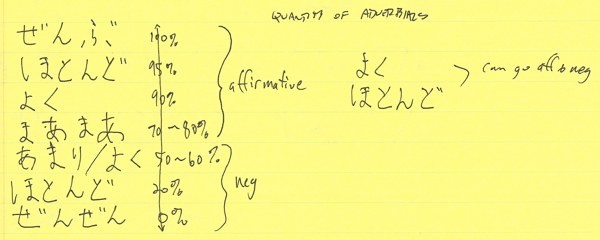With the goal of stirring up even more interest in Murakami between now and mid-October, when the Nobel Prizes are announced, I will post a small piece of Murakami translation once a week from now until the announcement. You can see the other entries in this series here: 1, 2, 3.

The illusion has ended, and boku and kimi are back in the archives of the Library. They walk outside, and he tells her what his decision is.
How much time has passed? When the last bit of light has disappeared and the original darkness returns to the archives, we leave without a word, turn off the Library’s lights, pass through the long hallway, and go outside.
It’s night and the wind has stopped; a strangely clear and quiet starry sky expands above our heads. Silently we walk the road along the river and as always stop at the middle of the Old Bridge to watch the river.
“When I met you… When I met your shadow, I was sixteen years old,” I say facing the dark surface of the water. “That year was a really mysterious year. I felt like everything just kept on leaving me behind. It was like everything just passed right through me… The first time I met you was at some party. Somebody’s birthday party maybe, something like that. I only spoke a couple words with you, but when I did, I felt like the world suddenly opened up right in front of my eyes.”
You take a few steps away from me and stare at the surface of the water just like me.
“And for months after that, I was thinking only about you. Every day was really tough…for those months until I built up enough courage to call you on the phone. Sometimes I felt like I could get anything I wanted, and other times I felt like I couldn’t get anywhere even with all the time in the world. Sometimes I had an incredible desire to sleep with you, and other times I was satisfied just watching you from afar… And as those months passed, in my mind you became a symbol of living. Or maybe of living on. I was living within that dream. I breathed, ate, and slept that dream. Do you understand those feelings?”
You nod slightly.
“Of course, these are just words to everyone. Maybe they don’t mean anything at all. But it’s just, I really wanted you to understand. Dreams, no matter what kind they are, are all dark in the end. If you say that it’s a dark mind, it’s a dark mind. Just mud that I made up in my head and sprinkled with gold dust. That kind of dream won’t take anyone anywhere. Just like the water that flows down into the pool, they just wander forever in dark subterranean channels with no destination.”
I cut off my words and look at the side of your face. You don’t move at all and keep your eyes fixed on the surface of the water. Only the murmur of the water hitting the rock of the sandbank surrounds us.
“I’ve lived with these thoughts for far too long. I also feel like they’ve only brought me suffering. But the thing is, I’ve gotten too old to get rid of these thoughts. Even if the long hallway I’m walking down has no exit, I think my real self can only be there. I couldn’t live with myself if I abandon my dark dream there, no matter how dark the dream is. I wouldn’t be the real me anymore if I cut myself off from it.
“As long as I’m with you like this in the Town, there’s nothing more I could want. This is the first time I’ve ever felt like this. I’m not anxious or depressed whatsoever. It would probably be like this forever. But even now, time continues to pass outside of the Town. Both the beasts and the shadows die. That won’t leave my mind like a stubborn stain on a shirt.”
Most of the water spills from my palms. Yet I mustn’t stop sharing.
“I’m going to leave the Town with my shadow. It’s going to be incredibly painful to leave you. I wanted to live with you in the Town forever.”
“Was the sixteen year old me that amazing?” you ask me, lifting your head.
“Absolutely. Like a dream.”
Then I hold you. I feel streams of hot tears on your cheeks.
“I’ll remember you forever,” you say. “Forever. That’s the only thing I can do for you.”
“Goodbye,” I say.
“Goodbye.”
**
I stare at the dark surface of the water even after she disappears off into the darkness at the end of the Old Bridge. And when a new sun sneaks a white color into the eastern sky, I return to the residences on the hill and slip into my empty bed.
Toward the end there are references to the very beginning of the story where boku talked about how words die. They spill through his hands as he attempts to hold them. The Town seems to represent a sort of ideal connection with a person. While it enables a satisfying relationship with kimi, it also threatens boku’s individuality. As he starts to describe his feelings, the narrative boku starts to show through, and we get hints of some other reality with birthday parties and phone calls. Boku has realized that he must go back to this reality, where kimi no longer exists, perhaps because she is dead. I’ve translated boku and his shadow’s escape from the Town here, and next week will be the postscript to the story.


